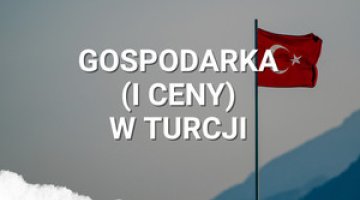Turkey: new government, old challenges
Recep Tayyip Erdoğan was sworn in for a third presidential term on 3 June in Ankara. The ceremony was attended by delegations of senior officials (heads of state or government) from Turkey’s neighbouring countries, that is Azerbaijan, Georgia, Bulgaria and for the first time Armenia. Hungary, Kazakhstan and Venezuela also sent their delegations. Additionally, present at the ceremony was NATO Secretary General Jens Stoltenberg. On the same day, the president announced the composition of the new government. Only two ministers (in charge of health and culture & tourism) out of seventeen retained their positions. The most important changes include the return of Mehmet Şimşek (who served as a deputy prime minister in 2009–2015) as Minister of Finance, and the appointment of Hakan Fidan (head of intelligence since 2010) as Minister of Foreign Affairs.
Commentary
- The new government is technocratic. The nominations of seasoned experts, such as Şimşek, and the dismissal of ministers known for their anti-Western statements, such as Süleyman Soylu (former Minister of the Interior), may herald the resumption of a more conservative – and therefore credible for external observers – economic and financial policy along with the adoption of a softer stance in domestic and foreign policy. The actual freedom of action of the ministers remains an open question, as the Turkish political system is dominated by the president, who is also the head of government.
- The ministerial reshuffle, albeit significant, is unlikely to bring about any fundamental changes in the country’s politics and economy. Most of the problems Ankara is facing today, both at home and abroad, are of a structural nature (for example, in relations with the West, they result from long-standing conflicts and differences in the perception of political interests and security). A reshuffle alone, without any significant re-evaluation of Erdoğan's attitude, will be of little importance in solving these problems, especially bearing in mind the ease with which the president has so far replaced the heads of the most important ministries.
- The nomination of Fidan as Minister of Foreign Affairs means that responsibility for Turkey’s policy in this area has been taken over by one of the president’s most trusted associates. Fidan served as the head of the National Intelligence Agency (MIT) for over a decade, so he was already a significant contributor to foreign policy, including in its most sensitive aspects. It is still an open question how his nomination will affect Turkey’s relations with its most important partners. Fidan is well known abroad and is, in general, considered credible, although he is also responsible for the aggressive moves of Turkish law enforcement agencies, such as the kidnapping of political opponents or the operations of Turkey’s intelligence services in Libya and Syria.
- The most important challenges the new Minister of Foreign Affairs will have to face include improving relations with the US and, something which is strongly linked to this, formulating Turkey’s position on Sweden’s accession to NATO. Another controversial topic will be continuing Ankara’s political and economic cooperation with Moscow, given the full-scale Russian invasion of Ukraine, as this may lead to the imposition of sanctions on Turkey. It seems, however, that its foreign policy may undergo a significant adjustment only with regard to the Middle East. Fidan will have to settle relations with Syria. This is necessary to enable the repatriation of Syrian refugees (there are 3.7 million of them in Turkey), an issue that was strongly emphasised during the election campaign. In all these matters, however, Fidan will primarily be an executor of Erdoğan’s will, not an independent player. He will be replaced as the head of MIT by İbrahim Kalın, former chief adviser and spokesperson for the president.
- Turkey’s economic policy is likely to be partially revised by the new Finance Minister. This is mainly due to the poor condition of the state finances resulting from the controversial monetary policy. This involved reducing interest rates despite high inflation in order to stimulate economic growth while supporting the value of the lira with foreign exchange reserves. The appointment of Şimşek, whose reputation in international financial circles is of being a rational and experienced economist, suggests that the government may change its economic strategy to some extent and resume a more conventional monetary policy. The first signal of this would be forcing the new head of the Central Bank (the position is currently vacant) to raise interest rates in order to curb inflationary pressure. However, this will require a green light from Erdoğan – who has so far dismissed finance ministers and Central Bank chiefs for trying to undermine his low interest rate policy – and granting the Minister of Finance real autonomy.





